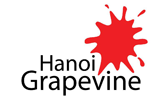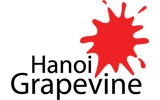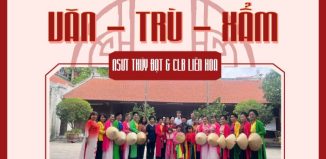Nghệ thuật như Nghiên cứu: Lấy lịch sử vi mô làm phương pháp

18:00, Thứ năm 20/10/2022
Sự kiện được phát sóng trực tiếp trên trang sự kiện
Thông tin từ ban tổ chức:
Được hai nhà sử học Carlo Ginzburg và Carlo Poni gọi là ‘khoa học của đời sống thực tại’, lịch sử vi mô là phương pháp nghiên cứu lịch sử với trọng tâm xoay quanh các chi tiết, thói quen, nếp sống hay cách suy nghĩ tưởng chừng không xác đáng. Giống như một dạng ‘lịch sử từ hậu cảnh’, lịch sử vi mô nỗ lực trả lại tiếng nói và quyền đại diện cho các đối tượng thường bị xoá nhoà và trừu tượng hoá trong những diễn ngôn chính thống.
Trong sự kiện webinar này, nhà sử học Mark E. Frank và nghệ sĩ Magnus Bärtås sẽ thảo luận về quá trình mà lịch sử vi mô phát triển thành phương pháp nghiên cứu. Từ góc nhìn của Sử học, Mark E. Frank sẽ trình bày về nguồn gốc của lịch sử vi mô; đồng thời, anh cũng sẽ chia sẻ về cách mà nghệ thuật thị giác đã hỗ trợ anh trong quá trình nghiên cứu về lịch sử Trung–Tạng. Magnus Bärtås sẽ bàn về những trao đổi tương hỗ giữa tầm nhìn lịch sử và phương pháp được sử dụng trong lịch sử vi mô và nghệ thuật thị giác, đặc biệt xoay quanh thể loại video tiểu luận (với các ví dụ từ thực hành hình ảnh chuyển động của bản thân Magnus).
Sự kiện này thuộc chương trình trao đổi nghiên cứu liên tổ chức giữa Đại học Fulbright Việt Nam và Đại học Nghệ thuật, Thủ công và Thiết kế Konstfack, được nhận Tài trợ Di chuyển Quốc tế của Quỹ Hợp tác Quốc tế về Nghiên cứu và Giáo dục Đại học (STINT), Thụy Điển. Sự kiện thuộc khuôn khổ chương trình giáo dục của trưng bày ‘Phổ Hiếu Kỳ’ do Nguyễn Art Foundation tổ chức.
* Ngôn ngữ: tiếng Anh (video tư liệu sẽ được làm phụ đề tiếng Việt và chia sẻ online trong thời gian sớm nhất có thể)
* Diễn giả khách mời: Mark E. Frank & Magnus Bärtås; Phản hồi: Nora Taylor; Điều phối: Pamela Corey & Bill Nguyễn
Mark E. Frank là Phó Giáo sư và Điều phối viên của chuyên ngành Sử học tại Đại học Fulbright Việt Nam. Anh đã xuất bản nhiều bài viết về vùng biên giới Trung–Tạng, bao gồm các chủ đề như lịch sử vi mô của các trạm thời tiết tại Trung Quốc, hay các trang trại thử nghiệm trên cao nguyên Tây Tạng vào đầu thế kỷ 20. Anh hiện đang hoàn tất cuốn sách The Rooted State: Plants and Power on the Chinese Frontier (tạm dịch: Đất nước gốc rễ: Cây cối và Quyền lực ở biên giới Trung Hoa), nghiên cứu về quá trình thực dân hoá nông nghiệp ở nhiều vùng khác nhau quanh biên giới trong thời kỳ Trung Hoa Dân Quốc, khi đất nước này đang trải qua một giai đoạn đầy khó khăn, trở ngại. Cuốn sách cũng kết hợp các quan điểm vi mô và vĩ mô để cho thấy rằng: theo một cách bất ngờ, trải nghiệm của từng cá nhân và cộng đồng có thể được phản ánh trong trải nghiệm tương đồng của những người khác xứ.
Magnus Bärtås là Giáo sư Mỹ thuật và Trưởng phòng nghiên cứu tại Đại học Mỹ thuật, Thủ công và Thiết kế Konstfack ở Stockholm, Thuỵ Điển. Anh làm việc chủ yếu với văn bản: trong phim, tiểu luận, và qua các sắp đặt/tập hợp. Các tác phẩm của anh đã được triển lãm ở Moderna Museet, Stockholm vào năm 1990, 2006, và 2010. Cũng trong năm 2010, anh đạt giải nhất tại Liên hoan Phim Quốc tế Oberhausen. Anh đã tham gia triển lãm tại Platform, Seoul, Hàn Quốc, 2009; Gwangju Biennale lần thứ 9, Gwangju, Hàn Quốc, 2012; và the Real DMZ Project, Art Sonje Center, Seoul, Hàn Quốc, 2013 và 2015. Năm 2016, Gothenburg Konsthall đã tổ chức một triển lãm hồi tưởng cho anh. Cuốn sách All Monsters Must Die (tạm dịch: Tất cả quái vật đều phải chết) do anh xuất bản, với Fredrik Ekman là đồng tác giả, nằm trong danh sách bình chọn của Giải thưởng August cho Văn học Thuỵ Điển vào năm 2011.
Tiến sĩ Nora Annesley Taylor là Giáo sư Alsdorf về Nghệ thuật Nam và Đông Nam Á tại Trường Học viện Nghệ thuật Chicago, và cũng là Hiệu trưởng lâm thời tại Đại học Fulbright Việt Nam. Cô nhận bằng Tiến sĩ từ Đại học Cornell, và là tác giả của Hoạ sĩ Hà Nội: Một cái nhìn Dân tộc học về Nghệ thuật Việt Nam (Hawaii, 2004 và được tái bản bởi Singapore Press, 2009); đồng biên tập Tuyển tập: Nghệ thuật Đông Nam Á Hiện đại và Đương đại (Cornell SEAP Press, 2012); và đã xuất bản nhiều bài viết khác về Nghệ thuật Hiện đại và Đương đại ở Việt Nam và Đông Nam Á. Năm 2014, cô nhận được Quỹ Nghiên cứu John Solomon Guggenheim để thực hiện nghiên cứu về tính chính trị trong nghệ thuật trình diễn tại Đông Nam Á.

















